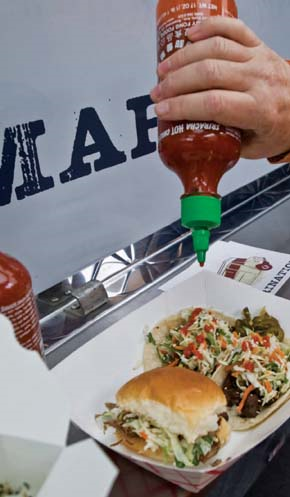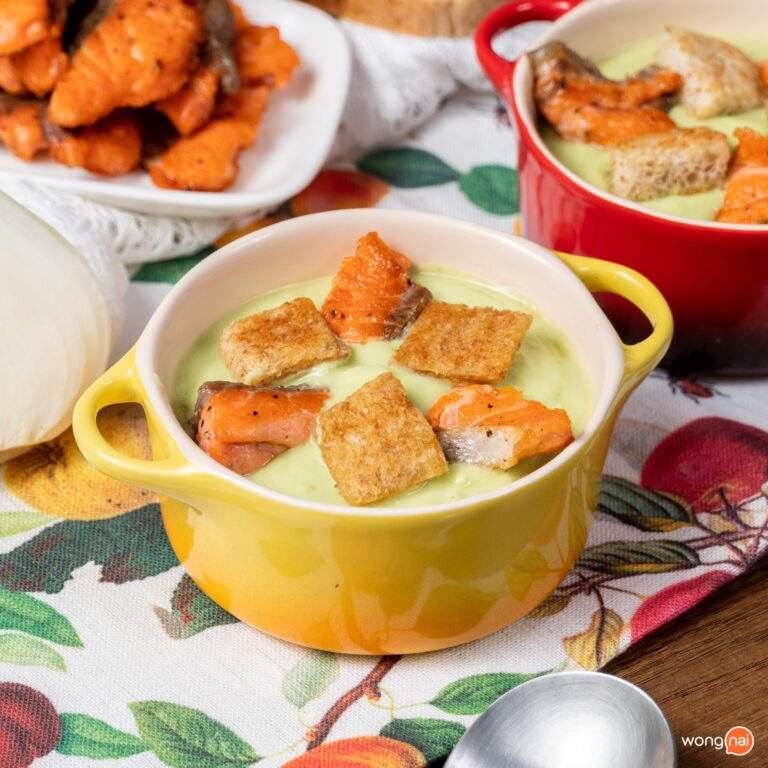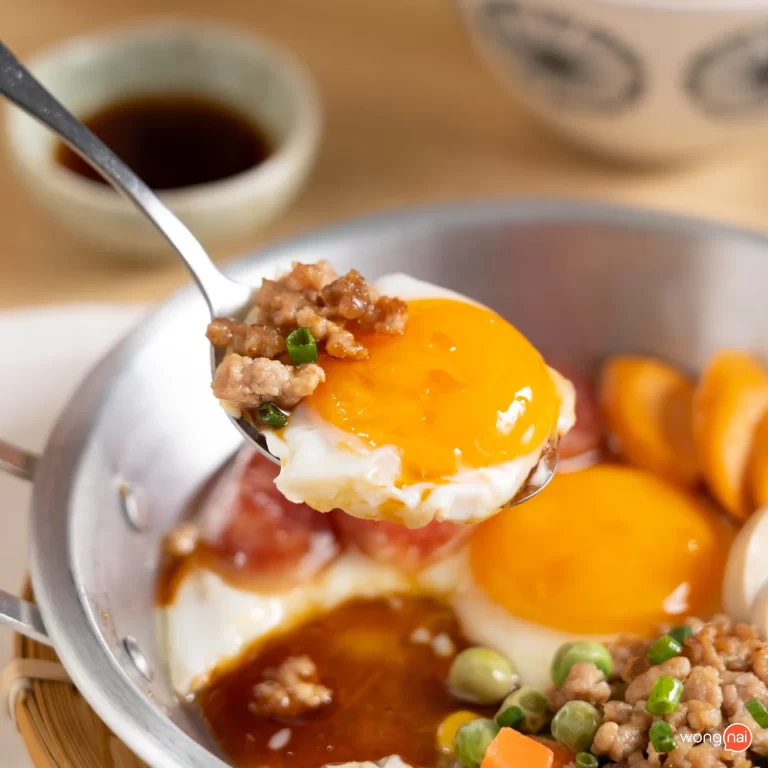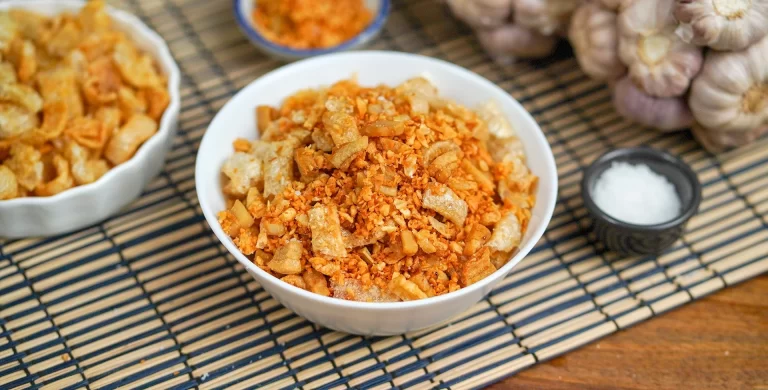TRAVEL IN HAWAII and you’ll notice these tiles of rice and Spam, bound in wraps of nori, displayed in hot boxes on the counters at neighborhood convenience stores. Spam is a vestige of World War II, when canned meat rations fed soldiers stationed on the islands. In this musubi recipe, inspired by the Marination Mobile, those pink slabs of pork get a quick fry in a pan and a douse of soy.

MAKES 8 MUSUBI
1 can (12 ounces) Spam
¼ cup soy sauce
3 tablespoons mirin (sweet rice wine)
3 tablespoons granulated sugar
4 sheets of nori, cut in 2-inch wide strips (see Notes)
4 cups cooked sushi rice
Furikake (see Notes)
- Remove the Spam from the can and set the can aside. Cut the Spam horizontally into 8 equal slices. Cook the slices in batches in a skillet over medium-high heat until a crisp crust forms on both sides, about 2 minutes per side. Transfer the cooked Spam to paper towels to drain.
- Combine the soy sauce, mirin, and sugar in a small saucepan over medium-high heat and let come to a boil. Reduce the heat so that the soy sauce mixture simmers, then add the drained Spam slices, turning them to coat completely. When the soy sauce mixture has thickened, use a slotted spoon to remove the Spam from the pan. Discard the soy sauce mixture.
- Remove both the top and bottom from the can of Spam. Place a piece of nori on a work surface. Position the Spam can upright on one end of the nori. Using the can as a mold, fill it with some of the rice, pressing down on the rice with your fingers until it is about ½ inch thick (it helps to moisten your fingers with water when doing this). Sprinkle furikake (see Notes) over the rice, seasoning it to taste, and top the rice with a slice of Spam followed by another layer of rice. Press hard on the rice to compress it. Carefully remove the can. Wrap the nori around the rice and Spam, moistening the ends with a bit of water to help seal the nori. Repeat with the remaining nori, rice, and Spam, then revel in the porky goodness that is Spam.
NOTES: The Sushi Chef brand of nori is widely available; it comes in .45-ounce packages.
Furikake is a Japanese condiment made from a combination of flavorings including ground dried fish, sesame seeds, and seaweed. It can be found at Asian groceries or ordered online.
LAST SEEN
2500 First Avenue, Seattle, WashingtonMARINATION MOBILE
Kamala Saxton, a principal in Marination Mobile, loves the intimacy of street food. “If I’m in a restaurant, I don’t always get to talk to the owner or meet the chef,” she told me. “On a truck like mine, you have no choice.
There’s no divide. We’re the people taking your order and cooking your food.”
Slate blue and slick, the Marination Mobile looks hip. But beneath that cool exterior is the chassis of an old linen services truck. And beneath the high concept food lurks a simple idea. “What we did was pay tribute to the lunch trucks of Hawaii,” said Kamala, who claims both Hawaiian and Korean lineage and who argues, convincingly, that those Hawaiian lunch trucks vend our nation’s foremost fusion on wheels.
On the Marination Mobile menu you’ll find kimchi quesadillas, kalbi (short rib) tacos with slaw, and kalua pork sliders. Kamala calls the chile-kicked sauce for the sliders “nunya sauce.” As in, if you ask for a recipe, you get the reply, “That’s nunya business.”


